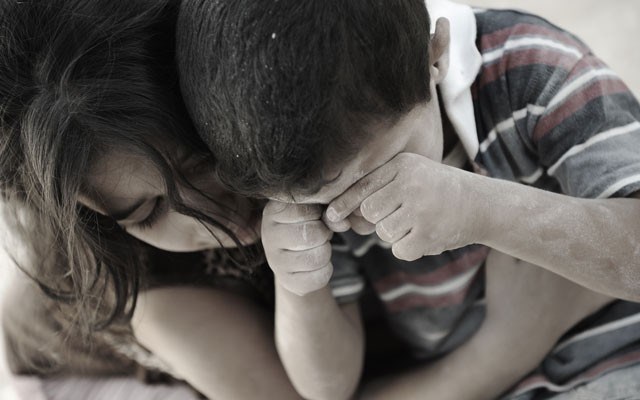There is no doubt that the ongoing media images of refugees pouring out of Syria are heart wrenching.
And when the tiny form of three-year-old Alan Kurdi, who perished along with his brother and mother while crossing the sea to Greece, was beamed around the world, as he lay lifeless on a beach earlier this month, the plight of refugees hit home in a way not experienced recently.
Everyone wanted to help.
At the beginning of the year, the U.N. High Commissioner on Refugees (UNHCR), made an appeal for $4.5 billion to cover the needs of the four million refugees that are living in the countries neighbouring Syria. But donations barely trickled in as donor fatigue continued.
But when the Kurdi story broke, "It refocused people's attention," Nancy Lindborg, president of the U.S. Institute of Peace said recently, "because otherwise, (all) you hear (are) these mind-boggling numbers, you know. The four million refugees are ultimately not as meaningful as a picture of the individual boy, who represents in a very real way the suffering."
According to the UNHCR, about $13 million was donated within a few days after the picture appeared.
Here in Whistler, the photo had its own impact. The resort's mayor Nancy Wilhelm-Morden, while feeling as shocked as the rest of the world, also realized that she had the power to do something about it.
She announced that she had asked staff, with the support of council, to investigate how the municipality could sponsor refugee families, and staff was also directed to draw up an emergency resolution to take the Unions of BC Municipalities' annual conference, demanding action by the federal government.
In the greater scheme of things, mayor and council's decision to try and sponsor refugees to come here may seem like a small step in an odyssey, but it goes to the very heart of what it means to live ethically.
All too often people feel that as a single human being they can make little difference in the world. But that is not true.
Take the story of Matt Wage (as shared by Princeton professor Peter Singer in an essay that first appeared in the Boston Review). Singer tells us that in 2009, Wage was researching at Princeton University, trying to find an estimate of how much it costs to save the life of one of the millions of children who die each year from diseases that we can prevent or cure. He found that if he donated 10 per cent of an average income to a highly effective organization he could save 100 lives over his lifetime.
His thesis landed him an invitation to study at the prestigious Oxford University.
But he turned down the offer, and went to work on Wall Street where he could earn much more money than a professor, and therefore donate much more, explained Singer. One year after graduating, Wage was donating a six-figure sum — roughly half his annual earnings — to highly effective charities. He was on the way to saving a hundred lives, not over his entire career, but within the first year or two of his working life and every year thereafter.
This is known as "effective altruism," explains Singer, and it is based on a very simple idea: we should do the most good we can.
Here in Whistler, and in many places across Canada most citizens have so much — we live in material comfort, we have food, clothing and shelter. There is room to use our spare resources to make the world a better place.
We have embraced this through the good works of the Whistler Re-Use-it and Re-Build-it Centres and the many good works that flow from here including Playground Builders, Bicycles for Humanity and Zero Ceiling to name a few of the organizations.
Helping the refugees can also be part of this, though it is a step that must be taken with full transparency. Refugees are often traumatized, they have lost everything, they are fleeing war, death and violence for the most part. They have usually lost everything. They need specialized social supports, which at the moment Whistler doesn't have in place.
These people are not economic immigrants.
But that is no reason not to welcome them.
However, as the community considers this step we must also look to our own. Whistler Community Services has just released a survey on those who are homeless here, and those truly in need continue to need support.
As we are touched by the plight of these displaced people we must also consider how we reach out to the thousands of Canadians who are also in desperate need of help.
Sometimes it may feel like such a massive mountain to climb, that even the first step is beyond us, but this is a path we should all try and tread, one footstep at a time.




